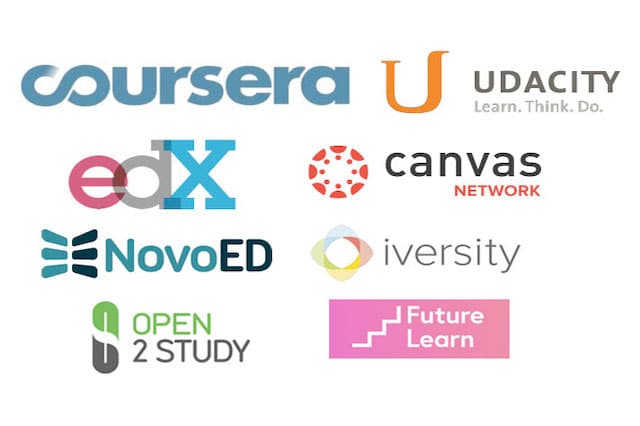For any aspiring college student, considering the cost of a college education can be terrifying. In fact, financial barriers are one of the most common deterrents in pursuing higher education. A 2015 study found that 83% of the American population did not think that they could afford a college education. Tuition rates have gone up since then, too.
The cost of college has been rapidly rising for decades. Public four-year institutions are considered the most affordable option for going to college, and the average tuition comes in just under $10,000 for in-state students; private non-profit four-year institutions are known to be more expensive, the average tuition at a school like this is roughly $35,000. Thirty years ago, they would have cost just around $3,000 and $15,000, respectively. These costs have more than doubled since the 1980s, and they’re not showing any signs of slowing down.
The option of student loans is still on the table to help offset the cost of obtaining an education. However, the statistics are equally staggering. Americans collectively owe $1.5 trillion in student loans. More than a third of the nation’s population under 30 currently has student debt and, unfortunately, only 32% of that group reports that they’re not struggling financially. By comparison, 51% of people in that age group that do not have outstanding loans report that they are able to live comfortably.
All of this can be a lot to take in. Especially coupled with the fact that many desirable career paths are requiring higher education and more specialized degrees. However, all hope is not lost! Scholarships and grants have been around for decades to help offset the cost of college for those who perform outstanding academically, have exceptional talent, or who simply need the boost to make it across the commencement stage.
Another way to shave some money – and time – off your college education is through the CLEP exam. This exam allows people to receive college credits for knowledge they already possess. So for instance, a high school graduate who took an AP course in English Lit may be able to get credit for that knowledge. An adult student who has received on-the-job training may be able to receive credits for that knowledge. There are currently 2900 colleges nationwide that accept CLEP exams as college credits.
There is also a new face in the realm of affordable college education: tuition-free colleges.
Over the past two years, free college education has become more accessible. Some colleges offer degree programs with absolutely no tuition, some of them offer free education in return for work or service, and some of them provide for over 99% of a student’s financial need if they are accepted. There are several ways that college can be completely tuition-free, and in this ranking, we’re going to walk you through how you can attend one of these schools and highlight the Top 15 Best Tuition-Free Online Colleges.
Tuition Free College: Is It Really Free?
Tuition is the amount of money charged in exchange for receiving an education from a school. There are some private secondary schools that charge tuition; however, it is most often associated with postsecondary education. Over the past several years, tuition-free college is becoming more of a reality.
One common way that this is made possible is through work and service. Deep Springs College, The College of the Ozarks, Berea College, and many others allow students to live on campus and receive an education without paying a dime. Instead, students must commit to anywhere from 15-40 hours of work per week, either on campus or in the community. While you won’t be paying any money out of pocket, you do pay through your labor and commitment to the school.
Another way that colleges allow students to attend tuition-free is through financial aid packages. These packages always cover tuition in its entirety, but there may be some conditions. Some schools prefer students to live within a certain area, some of them require students to take summer jobs or jobs on campus so that they can pay at least a little bit of money, and some of them will cover tuition but not any of the additional fees. The way that it is structured will differ by institution, of course. So, once again, tuition-free colleges may still require something in exchange for the education that they provide. Most of these scholarships are based solely on financial need.
There are also colleges that charge no tuition at all, based solely on their commitment to making education accessible to all students regardless of their academic or economic background. However, these colleges will typically charge students a small fee per course or per exam.
Tuition-free college is tuition-free, but there may be additional costs in the form of labor or fees. Keep in mind, though, that while you still may end up paying something or having to extend some extra effort outside of academics to make it happen, this is one of the most affordable ways to get a college education. The tuition-free college will save you thousands of dollars; there’s no question about it.
Can I Earn a Free Degree Online?
For the most part, yes. It is possible to earn a tuition-free college degree online. The schools featured in this ranking are all tuition-free, whether that is by nature or based on a program or initiative at the school.
However, each institution is going to have different requirements that you have to meet in order to qualify to get your education without paying tuition. It is important that you do your due diligence in researching these schools and determining what your best option is.
Alternative Options for Free and Low Cost College Courses Online
Massive Open Online Courses or MOOCs are another innovation in the realm of tuition-free and accessible education. Many platforms exist that allow you to take college courses completely free online. Some examples are iTunesU, Coursera, and Udemy. Many of these platforms have partnered with some of the top universities in the world to allow you to take a college course for free online. However, many of them are not-for-credit. If you do want to earn some kind of credit, you will have to pay some money. If you want to earn a traditional college degree, you would have to pay tuition if you went through one of these platforms, so we’re not focusing on that. However, there are certificate programs that are available.
Udemy is a MOOC platform that is not accredited, so you wouldn’t be able to earn college credits through any of the programs available. You can not use any Udemy Certificates of Completion for formal accreditation in an area. However, many employers still recognize these as a legitimate demonstration of your accomplishments.
Coursera is another MOOC platform where you can earn Specializations, Professional Certificates, and more. Google, IBM, Arizona State University, the University of California, and so many other providers have courses and short programs available on Coursera. The certificates that you can earn through this program are formally recognized by employers. Some colleges may recognize them for credit, but that is at the sole discretion of the university. Instead of paying per course or paying tuition, you do have to pay a $49 per month subscription fee to Coursera. Some certificate options could qualify you for financial aid, and Coursera offers a seven-day free trial to new users.
Methodology
To rank the best online tuition-free schools, we started by curating a list of all of the schools that offered students the opportunity of attending tuition-free. Schools that explicitly require students to live on campus were excluded. However, some of the schools may still require students to live in a certain area. As long as an institution provides students with a way to attend tuition-free while attending online courses, it was considered.
We created categories based on the way that the tuition-free program at each school is executed.
- Tuition Free Schools do not require any students to pay tuition at all.
- Schools offering Full Documented Need Scholarships do charge tuition; however, they have scholarship and grant programs that completely cover the full cost of attendance for students that demonstrate financial need.
- Schools offering Full Tuition Scholarships also charge tuition; however, there are financial aid programs that cover all tuition costs associated with attendance. These schools still require the student to pay any fees associated with earning their degree.
Within each category, schools are ranked according to the amount of money students can save. For instance, in the Full Documented Need Scholarships category, the top school is Cornell University. The average cost of attendance at Cornell is $31,449, so it is assumed that attending that university tuition-free would save the student that amount of money.
Tuition Free Schools
1
University of the People
Top Pick

The University of the People is a tuition-free online university that was founded in 2009. It is the first-ever institution of its kind, and it is fully accredited. There are roughly 20,000 students in attendance from all over the globe. A small selection of undergraduate and graduate degrees are available in the fields of business, computer science, health science, and education. This is a proper university that allows students to enroll part-time or full-time based on the needs of their schedule. There are not any accelerated degree options currently available, so you can expect a bachelor’s degree to take about four years to complete.
The University of the People does not charge any students tuition for the courses that they take. There is an application fee, and you may have to pay some fees for third-party evaluation (like a background check) if necessary. Instead of paying tuition, you will just pay assessment fees for each course that you take. These vary by degree level. Undergraduate assessment fees are $100 per course, and graduate assessment fees are $200 per course. All in, you can expect to pay just $4,060 for a bachelor’s degree. Grants and scholarships may be available to make that cost go down even lower, too! UofPeople also accepts transfer credits if you have already completed some college.
To learn more about how you can go to the University of the People for free, click here. You can also learn more about the school by visiting their official website.
2
New York University of Business and Technologies

The New York University of Business and Technologies is another tuition-free online college. One thing that we would like to note is that NYUBT is currently up for accreditation for the 2019-2022 period. It is seeking accreditation from the Distance Education Accrediting Commission; however, that has not been secured. You will want to consider this before attending this school. NYUBT offers fully-online programs in business. Currently, you can pursue a Bachelor of Science in Business Administration, Management Information Systems, or Marketing. There is also an MBA program. There is no physical campus; this is purely an online college. Classes are asynchronous; however, there are no accelerated degree options.
There are no tuition costs for any of the programs at this university. The application process is also free, which distinguishes it from the only other free online university in the country. The only costs that are associated with earning your degree from NYUBT are the exam processing fees, which vary by degree level. Exam fees for undergraduate students are $42 per course, and for graduate students, they are $75 per course. So, if you were to pursue a BBA, the total cost is just $798 at this school.
To learn more about how you can go to the New York University of Business and Technologies for free, click here. You can also learn more about the school by visiting their official website.
Full Documented Need Scholarships
3
Cornell University

Cornell University is a private Ivy League university located in Ithaca, New York. It’s one of the older institutions of higher learning in the country, as are most Ivy League schools. Cornell Online is its distance learning platform, and there are a variety of certificates, degrees, and single courses available. The majority of the online degree programs are provided through the College of Engineering. All of the online options through Cornell Online are for-credit unless you find a single course that is offered for free. Cornell also offers MOOCs that allow you to explore a college course without paying anything, but also without earning any college credits. Free tuition opportunities only apply to full-fledged degree programs. Right now, your options are a Master of Engineering in Systems Engineering and a Master of Human Resource Management.
Cornell University is one of several schools that will meet 100% of a student’s demonstrated financial need. So, in order to get free tuition at this school, you will have to meet some income requirements. If your family brings in less than $60,000 per year, Cornell will provide you with a full-cost scholarship that can be used to cover tuition, fees, room, and board, or whatever else you may need.
To learn more about how you can go to Cornell University for free, click here. You can also learn more about the school by visiting their official website.
4
Brown University

Brown University is another Ivy League university. It is one of the more flexible colleges that has the Ivy League distinction, and it offers its students a lot of unique opportunities. At the undergraduate level, pre-college preparation courses, as well as individual college classes, are available online. So, you don’t have the option of taking a fully-online bachelor’s degree program at Brown yet. However, there are graduate programs that can be taken completely online. The current offerings include an MBA program, as well as a master’s in healthcare leadership, science and technology leadership, and cybersecurity. Online classes run on a typical semester schedule and are presented in a blend of synchronous and asynchronous formats.
The Brown Promise is how students can attend Brown University tuition-free. As of 2018, this university has completely restructured its financial aid programs so that all university aid comes in the form of scholarships that are gifts to the students as opposed to a traditional loan. Free tuition has been available at Brown for several years, but it is even more accessible now that this restructuring has taken place. If your family makes under $60,000 annually, Brown provides a full scholarship that makes your tuition and fees completely free. In order to be eligible for this tuition-free online college, some students may be required to take jobs on campus or in their community. Brown also doesn’t restrict your ability to take out student loans to cover the amount that would typically come from work, which is under $3,000 per year.
To learn more about how you can go to Brown University for free, click here. You can also learn more about the school by visiting their official website.
5
Vanderbilt University

Vanderbilt University is a private research university that is in Nashville, Tennessee. Online degree programs at Vanderbilt are offered by the Peabody College of Education and Human Development. Right now, there are some undergraduate course selections that you could take as part of a hybrid program, but the only online degrees are offered at the graduate level of study. Vanderbilt also provides both paid and free MOOC content that can be taken for personal enrichment or a certificate of completion. Online degree programs at Vanderbilt are growing, but right now, the only options are a Doctor of Education in Leadership and Learning in Organizations as well as a Master of Education in Human Development Counseling. Classes are presented primarily asynchronously, with some synchronous components to enrich the learning experience.
Vanderbilt has followed the trend of many other prestigious private universities in restructuring the way that financial aid is provided. Vanderbilt no longer offers loans that need to be repaid, and it has also committed to meeting 100% of the demonstrated financial need if a student qualifies. If you meet certain financial thresholds, Vanderbilt’s financial aid package provides a combination of grants and scholarships that will cover all tuition and fees. Vanderbilt also participates in the Federal Work-Study Program. You may be expected to hold a job on campus; however, you can apply for permission to live off-campus without jeopardizing any financial assistance provided.
To learn more about how you can go to Vanderbilt University for free, click here. You can also learn more about the school by visiting their official website.
6
City University & the State University of New York

The Excelsior Scholarship is the first accessible college program in the nation, and it makes college tuition-free in the state of New York. In order to be eligible for tuition-free college under this scholarship, you must be a resident of New York State. This scholarship can be applied to any institution in the CUNY and SUNY university systems. As long as you are a participant in the scholarship program, you must reside in New York and you must take a minimum of 30 college credits per the calendar year. However, it is not required that you study on campus. So, you could earn a two-year or four-year degree completely free!
The State University of New York offers close to 500 different online degree programs. Bachelor’s degrees, master’s degrees, and certificate programs at SUNY are offered entirely online, and the majority of the classes are presented asynchronously. CUNY is still expanding its online learning opportunities; right now, degrees are offered online in the fields of criminal justice, nursing, business, and more. As long as you live in New York and can meet the full-time study requirements, you can qualify for free tuition with the Excelsior Scholarship if your family makes $125,000 a year or less.
To learn more about how you can go to college in New York for free, click here. You can also learn more about the schools by visiting the CUNY and SUNY websites.
7
Duke University

Duke University is a private university that is in Durham, North Carolina. Online programs at Duke vary widely in field, but they are all offered at the Masters and Doctorate levels. Degrees in engineering, business, ministry, environmental management, and more are all available in primarily online formats. Depending on your program, there may be short residencies associated with completing your degree, but they are all designed to be accessible for professionals no matter how busy they are or where they live. There are also a number of professional certificate programs that are offered at a distance, but these may not be covered under the free tuition program at Duke.
Students are considered for Duke under a need-blind policy; this means that if you have an excellent track record in academics, it doesn’t matter if the university thinks that you will be able to afford the degree. Instead, it is committed to meeting students where they are and providing a combination of grants and scholarships that will eliminate most or all of the out of pocket costs associated with attendance. Your family must make less than $60,000 a year to qualify for the full benefits. There are work-study opportunities if you live near campus; you may be expected to make a financial contribution of around $2,000 depending on the terms of your financial aid package. Duke is also different in the sense that it may still offer loans that need to be paid back. This is calculated based on your income, and you could still end up not owing anything. In fact, 67% of Duke University graduates complete their degree programs with no debt.
To learn more about how you can go to Duke University for free, click here. You can also learn more about the school by visiting their official website.
8
Yale University

Yale is a very highly-esteemed private Ivy League university that is in New Haven, Connecticut. Unfortunately, there are not very many online options if you would like to attend Yale; however, they do offer tuition-free degree programs. If you want to study entirely online, you must be interested in the Master of Medical Science degree program. However, Yale has for-credit online courses in a range of subjects at varying levels. This means that you can complete a hybrid degree program, blending online and on-campus classes at this university, and you may not have to pay anything at all.
Yale University offers an amazing guarantee that it will cover all of the costs associated with earning your degree if you need it. The Dean of Undergraduate Admissions and Financial Aid can be quoted as saying, “[i]f you get into Yale, we feel sure that cost will not be a barrier in your decision to attend.” Families whose total gross income is less than $75,000 won’t be expected to make any financial contribution at all. This limit is slightly higher than other schools, but it still provides you with the opportunity to earn a tuition-free college degree. Students can work on-campus or off-campus to make up for the small Student Share that may be expected; this amount is only $1,600 in most cases. Yale also does not expect students to take out any loans.
To learn more about how you can go to Yale University for free, click here. You can also learn more about the school by visiting their official website.
9
Harvard University

Harvard University is a private Ivy League university; it is the oldest institution of higher learning in America and, arguably, the most prestigious university in the world. This is a highly-residential institution; however, there are a surprising number of online degree opportunities. At the undergraduate level, the only option is a Bachelor of Liberal Arts degree. There are also close to two dozen master’s programs, as well. If you’d like to earn a degree online at Harvard, you will have to take four of the courses on campus. This can be done over a three-week residency or weekend intensives depending on the course. Even though that is more time on campus than a lot of other programs, you won’t be disappointed in the flexibility and, of course, the quality of the education you receive.
Harvard University boasts that 20% of its student body pays absolutely nothing to attend. This is made possible because, like many other Ivy League schools, Harvard accepts students regardless of their financial status and further, commits to meeting 100% of their financial needs. If you receive financial aid from Harvard, you will likely be expected to contribute to your education by taking on a job during the academic term. You also have the option to use outside scholarships to cover this small cost. The financial aid package from this university is available to qualified students whose families meet the income requirement. If awarded, you can earn your degree online with no tuition cost.
To learn more about how you can go to Harvard University for free, click here. You can also learn more about the school by visiting their official website.
10
Stanford University

Stanford University is located in Stanford, California. It is a private research university that is considered one of the premier institutions in America. There are a variety of certificate programs, master’s degrees, and even individual courses offered through its distance education platform, Stanford Online. You could earn a graduate degree completely online and asynchronously, or you could supplement a campus-based bachelor’s degree program with online courses. Stanford is also a prominent provider of MOOCs across a variety of delivery platforms.
Stanford is not an Ivy League university but, given its reputation and commitment to curating excellent students, it has taken a page from the Ivy League book when it comes to being tuition-free for students who cannot pay for college. This university meets 100% of the demonstrated financial need of its students whose families make less than $65,000 a year. Students are not expected to take out any student loans and are welcome to use outside scholarships to cover any expected contribution from work. The majority of students that meet income requirements are able to attend Stanford University, not only tuition-free but also without paying a dime.
To learn more about how you can go to Stanford University for free, click here. You can also learn more about the school by visiting their official website.
11
University of North Carolina at Chapel Hill

The University of North Carolina at Chapel Hill is the first public university to be featured in this ranking of the best tuition-free online colleges. It is located in Chapel Hill, North Carolina, and even though it is a public institution, it was one of the first in the country to receive designation as a “Public Ivy.” There are a lot of online degree programs to choose from at UNC-Chapel Hill. There are two doctoral degrees, nine master’s degrees, and eight graduate certificate programs that you can take entirely on the web. At the undergraduate level, you can take all of the core curricula for any program online, but there are no undergraduate electives offered. You would need to take these classes on campus to meet your degree requirements.
Free tuition at the University of North Carolina at Chapel Hill is made possible through the Carolina Covenant. The program was launched in 2004, and now, as much as 10% of the university’s undergraduate student population benefit from this program. In order to qualify, students must meet certain income requirements based on the Federal Poverty Guidelines. Students can live on or off-campus, and can even use their Covenant funds to apply to a study abroad program if so desired. Some students may need to hold a Federal Work-Study job as part of this program. The Carolina Covenant allows students to attend as many as eight regular semesters at the university completely tuition-free and helps them to graduate completely debt-free.
To learn more about how you can go to the University of North Carolina at Chapel Hill for free, click here. You can also learn more about the school by visiting their official website.
Full Tuition Scholarships
12
Texas A&M University

Texas A&M University is a relatively large public university in College Station, Texas. It has more students than any other university in the state of Texas and offers a broad selection of online degrees. There are a total of 72 different degree and certificate programs that can be taken entirely online, with the majority of the degrees available being masters-level programs. Online degrees can be earned in the areas of business, public health, statistics, engineering, and more. Twelve different colleges and schools that fall under the TAMU umbrella have online options. Classes are presented asynchronously for the most part, and many programs don’t require any visits to campus.
Texas A&M University offers tuition-free degrees through its Aggie Assurance program. There are more strict requirements on this program than some of the other schools featured, and fewer things are covered. You must be a Texas resident that is enrolled full-time at Texas A&M University-College Station. There are also GPA and income requirements that must be met. However, this program covers your tuition in full. It may expand in the future to include fees and other costs, but at this time, you will still be wholly responsible for all costs except for tuition.
To learn more about how you can go to Texas A&M University for free, click here. You can also learn more about the school by visiting their official website.
13
Arizona State University

Arizona State University is a public research university with a campus that spreads out over the Phoenix metropolitan area in Arizona. It has one of the most robust offerings of online degrees out of all the schools ranked here among the best tuition-free online colleges. There are over 300 online degree programs offered at the undergraduate, graduate, and certificate levels. Online classes at ASU are short, sometimes only seven and a half weeks each. They’re also asynchronous. So, students have the option of studying full-time, part-time, or in an accelerated format and can complete their degree at a much quicker pace than at other institutions. Online degrees are offered in an impressive range of fields, and you could earn one of those online degrees tuition-free.
ASU provides free tuition to a specific set of students, so this is not as accessible as other free tuition programs, but it is worth noting because you could earn your degree without having to pay anything! The scholarship that qualifies students for free tuition at Arizona State University is the Starbucks College Achievement Plan. This is 100% tuition coverage that is offered to all benefits-eligible Starbucks employees. This scholarship can be applied to online programs. The student responsibility portion is completely reimbursable on top of the scholarship that covers the majority of your tuition upfront. With this scholarship, students that qualify for additional need-based grants will only be responsible for class fees, books, and school supplies.
To learn more about how you can go to Arizona State University for free, click here. You can also learn more about the school by visiting their official website.
14
City College of San Francisco

The City College of San Francisco is a public community college that’s located in San Francisco, California. It is the only community college that made the list of colleges offering tuition-free online degrees. Although it is a community college, it’s not small by any means. The current enrollment is roughly 70,000 students. There are a variety of online classes and programs at CCSF. Most of them are asynchronous, but they’re not self-paced. The classes you take online at this school, like at a traditional campus, will require regular (virtual) attendance and participation. Students must live in California in order to take online classes at CCSF.
With that said, students that don’t live in San Francisco are not eligible for this free tuition opportunity, anyway. Free City is the scholarship that allows students at this school to earn their degree without having to pay any tuition. There are no income requirements, and there are non-resident exemptions that may be awarded. Students who move to California can benefit from Free City as long as they have lived in California for a minimum of 366 days. This scholarship covers 100% of the tuition costs at the City College of San Francisco and provides students a guaranteed transfer pathway to six of the University of California schools.
To learn more about how you can go to the City College of San Francisco for free, click here. You can also learn more about the school by visiting their official website.
15
Macaulay Honors College at CUNY

The Macaulay Honors College is an honors college for students attending any institution within the City University of New York system. It is very selective, admitting students that perform with the utmost academic excellence. Macaulay itself doesn’t offer any online learning opportunities. Students will have to come to the college’s main building in Manhattan for various seminars, lectures, and events. However, most of the classes that you take are taken at your home campus in the CUNY system, including online. Students who are interested in blending their online CUNY degree program with a traditional honors college experience can take advantage of this unique opportunity as long as they qualify for admission to the honors college.
The scholarship offered at the Macaulay Honors College at CUNY covers 100% of the tuition cost for eight semesters of full-time undergraduate study at either different CUNY locations. Summer and winter classes are covered by this scholarship; any summer classes you take prior to entering your freshman year are excluded. You can earn an online degree at CUNY and participate in the activities at the Macaulay building absolutely tuition-free. The only financial responsibility on the student is any course fees, books, and school supplies. Students admitted to Macaulay that meet the requirements for in-state tuition at their home campus are eligible for this scholarship.
To learn more about how you can go to the Macaulay Honors College at CUNY for free, click here. You can also learn more about the school by visiting their official website.
FAQ: Answering Your Questions About Free Online College
Are Any Colleges Completely Free?
The most straightforward answer to this question is no. There are several colleges that are tuition-free across the United States; however, there is always some amount of cost to the student. As we covered in the introduction, many free colleges will require you to do some work or community service in exchange for the tuition. This won’t cost you any money, but it does cost you time and effort, so it isn’t exactly free in the traditional sense. Other tuition-free colleges, particularly tuition-free online colleges, will still need to collect fees from the students. This is considerably more affordable and is tuition-free, but there is still some cost involved.
Scholarships that cover 100% of the students’ financial need can make it, so college is completely free for any student receiving the scholarship. Some of these scholarships do expect small contributions from the students, though. This can be through part-time jobs during the academic term, or small contributions from any assets the student has like savings or a trust. Outside scholarships can combine with this type of aid, though, which would make it so that you wouldn’t pay any money to earn your degree.
Are Tuition-Free Colleges Legitimate?
Tuition-free colleges are just as legitimate as one that you would pay to attend, most of the time. There are some colleges that are not accredited at the national level and are only licensed to operate in the state that they are based in. Genesis College, a Christian college in the state of Florida, is a great example here. It doesn’t have any accreditation; however, it does meet all of the statutes and standards in Florida to operate as a postsecondary institution. It’s a free college.
But, tuition-free colleges are legitimate. The University of the People is fully accredited and recognized by the Department of Education. Tuition-free colleges are also not always tuition-free by nature. Some extremely reputable and prestigious colleges and universities offer different types of financial aid that lead to them being tuition-free for some students, but they’re not in and of themselves tuition-free.
The main thing to keep in mind when it comes to finding a legitimate college that you can attend for free is that it is accredited and recognized by the Department of Education. As long as you properly vet the school before applying, you have nothing to worry about, no matter how much or how little you pay for your degree.
Will My Degree be the Same from a Free College?
Yes. The degree that you earn from a free college, or for free from a traditional college, will be the exact same degree you would have received if you paid for it. There is nothing on the degree that will specify anything about your financial history, nor is that information in your transcripts. Your financial information is completely private with a college, as is your financial aid package. No one will know that you received your college degree in a non-traditional manner unless you decide to tell them.
It is a common misconception that something that is expensive is inherently better than something affordable, but there is nothing to be concerned about when it comes to tuition-free college education. In fact, many of the financial aid packages or other programs that result in free tuition come with additional academic benefits such as mentorship, job placement, and more. The classes are the same, the program of study is the same, and the degree will be the same; similar to students enrolled in the same Bachelor of Business Administration program will take the exact same curriculum if one has student loans and the other does not.
Who Pays for Tuition Free College?
As the saying goes, there is no such thing as a free lunch, right? Tuition-free college is an amazing opportunity for students that couldn’t otherwise afford an education, and as tuition-free options are expanding, education is becoming accessible to so many people that may not have been able to ever afford it on their own. This is a great thing, but it can leave you wondering who exactly is paying for it all.
Tuition-free colleges like the University of the People and larger universities that guarantee to meet the financial needs of their students like Duke University, and everything in between are able to fund their free programs in a variety of ways. Donations to universities come from people, community organizations, the government, and corporations every year. In addition to that, fees and other revenue streams help make free tuition possible.
Will I Still Need Financial Aid at a Free College?
Apart from the colleges that are strictly tuition-free, it is through university financial aid that you can attend college without paying tuition. So, the answer to this question lies in what type of school you are going to. If you are going to a tuition-free online college, you may not be eligible for traditional financial aid from the federal government; however, you can still apply for outside scholarships from individual organizations. These external funding sources can help with application fees, exam fees, and any other smaller costs assessed by the institution.
If you are going to a physical campus that offers free tuition in exchange for work, like Alice Lloyd College, you might still have to pay for room and board, matriculation fees, books, and supplies. If this is the case, you can use financial aid to cover those expenses if you’d like.
If you are going to a traditional university that offers tuition-free opportunities based on financial need, it is not likely that you will need any external aid to cover the cost of your education because that is exactly what the university promises to do. However, applying for FAFSA is an important step in securing this type of scholarship from the school you choose.
Related Articles
-
How to Be Successful in College in 2022 – 7 Simple Tips to Succeed
-
How Do Scholarships Work? Read This First…Truth is Shocking
-
7 Best College Majors 2024: What Should I Major In?
-
How to Choose a College – 10 Things You Must Consider in 2024
-
Why Go to College? Top 13 Benefits for Adult Students in 2022
-
Top 5 Best Alternatives to Community College for 2024












